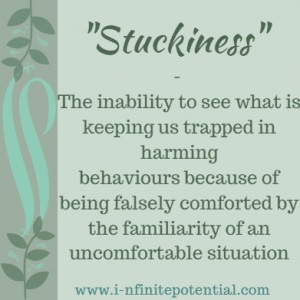Are you carrying a grudge you just cannot let go? Or more than just one or two big ones? Or is it a normal part of life? Do you often have to push people out of your life because of grudges you have no way of resolving?
Do you know that beleaguered feeling of “Something has been done to me that I just cannot let go of, as letting it go will mean that I have to let someone or something in where they can harm me again”
Most of us struggle with letting go of grudges from time to time, but if it is a regular way of life for you, or if your world is getting smaller and smaller because you are shutting out more and more “offenders”, you are doing yourself unnecessary harm. The great thing is that awareness and just a few adjustments will help you to still be self-respecting, and keep harmful people out of your life, without losing unnecessary people.
There is enough reason to want to let go of The Habit of Holding Grudges once we become aware of all the negative and draining energy we create in our own life, through holding grudges:
Grudges are about
– feeling less
– feeling judged
– feeling abandoned
– feeling rejected
– feeling hurtYes, we are going to have beautiful explanations of how we were hurt and what was done to us and very real stories that logically explain this grudge. But that is not what it is all about. It is about how we felt. About what we perceive the other person to have taken from us.
So how do we get into grudge-mode in the first place?
First you forget you are an adult with a voice!
Then you switch into victim mode.
Now for getting out of grudge-mode:
1. How we feel depends on how we choose to see something.
“Mom, he took my truck!”
“That is fine, let him play with it. You have plenty of toys”
I mean, that happens to everyone, doesn’t it? How you process it just depends on how loved you feel, how many toys you have, on whether your mum will support you if the boy breaks your truck, and on how good she is with affirmation and distracting.
But when we are adults it is our own job to affirm, be reasonable, have a “no” and have consequences and not try and resolve things by lying on our backs, screaming and kicking wildly!
2. We remember: “I am an adult with choices, a voice, a no.”
We remember that we are not 4 years old, we are not powerless, and that we are supposed to be our own adult.
People do what we allow them to. They do not do it to us. They have our silent permission when we are not our own adult.
3. We grow ourselves bigger
We do that by loving ourselves, by affirming ourselves, with self-care and self-acceptance. And as we grow bigger inside ourselves, less people and events are able to hurt us into grudge-mode. As grudges are about feeling less and besieged, growing stronger automatically takes care of it.
And as we grow ourselves, eventually we will either not see those perceived injuries any more, because they were self inflicted for the most part, or we will be able to feel a measure of compassion for the “villain” in the story.
Last little note
Letting go of grudges does not mean inviting harmful people back into your life. Part of growing up is realizing that a boy who breaks your truck just cannot play with your truck!
Letting go of grudges means letting go of “feeling aggrieved/bitter about, be annoyed about, be angry about, be displeased about, be resentful of, mind, object to, take exception to, regret, giving unwillingly, giving reluctantly, giving resentfully, giving stintingly”.
Let me know if the bells are ringing!
Ding, ding, ding!
Much love
Louise




